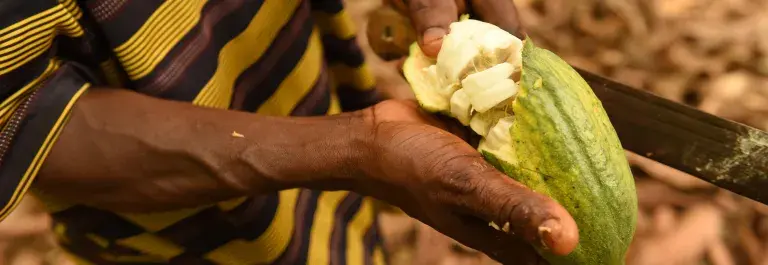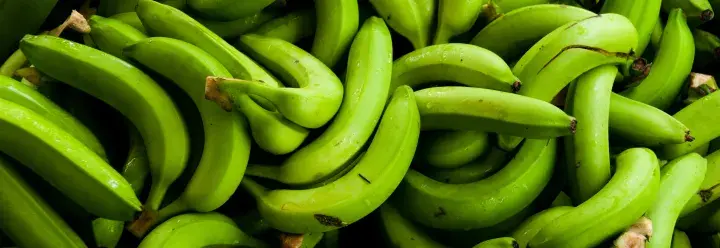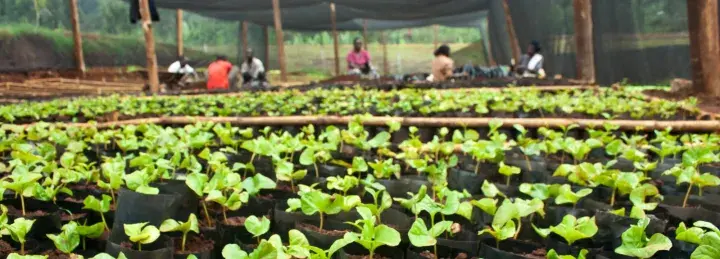At a time when living income for farmers is a key issue for governments, civil society and industry, the Living Income Community of Practice (LICOP) gathered experts for a workshop to discuss issues around the concept of living income.
During the workshop, held in April, more than 200 delegates gathered to align on the key context and concepts of living income, share information, learn from the experience of different sectors and build partnerships.
Moving towards sustainable global supply chains
In the 'Living income: state of play' session the tone was set, highlighting that moving towards sustainable global supply chains is a journey. Beate Weiskopf, Executive Secretary of the German Initiative on Sustainable Cocoa (GISCO), outlined the impressive journey towards improving livelihoods and living income for cocoa farmers and their families. She stressed the guiding role of the LICOP in supporting the ongoing process of harmonising the monitoring frameworks of the European initiatives on sustainable cocoa in Germany, Belgium and Switzerland.
As world market prices do not consider production costs or living expenses, Antonie Fountain, Executive Director of VOICE Network, called on the industry to acknowledge fair pricing as an indispensable element of a holistic living income strategy.
Randi Wagener, of GIZ, went on to describe the coffee sector’s experience. He highlighted that securing higher incomes for smallholders is an overarching goal of GIZ’s current coffee projects, as seen in Ethiopia, where GIZ and its partners are working to establish a sustainable production region in which smallholder coffee farmers can generate higher incomes.
Participants then heard how the potentials of small, medium and large coffee farmers in Colombia could be harnessed through sourcing and pricing strategies, before finding out about lessons learned from the Malawi Tea 2020 project.
Closing the income gap
The next session covered strategies to close the income gap, with Sustainable Food Lab’s Don Seville discussing different strategies to improve farmer income on farm, value chain, community, landscape and sector levels. Delegates discussed the importance of context, as Seville emphasised that farmers are not all the same, and any holistic living income strategy must consider a smart mix of intervention tailored to different farm and family circumstances.
Cheryl Pinto from Ben & Jerry’s shared how the company partners with Fairtrade on their Producer Development Initiative — building on their brand commitment to linked prosperity. While, Fairtrade International’s Carla Veldhuyzen explained the key pillars of Fairtrade’s living income strategy: sustainable pricing, Fairtrade sales, sustainable yields and cost efficiency.
Inge Jacobs, from Mars Wrigley, spoke about the supply chain strategies of longer sourcing contracts and the importance of supplier relationships. Speaking about their investments in factors that help farmers increase income and assets, she emphasised that they are testing a number of new interventions with the intent of scaling those that have evidence of impact.
One of these interventions is the setting up of the Village Savings and Loan Associations (VSLAs) in the communities where they source cocoa. VSLAs is a strategy used widely in the cocoa and other sectors, which in some cases have increased household income by 45 percent and individual savings by 34 percent.
Measurement and strategy for living income
During the ‘Modelling and monitoring for a living income’ session delegates discussed the links between measurement and strategy: exploring how three different organisations use measurement and modelling techniques to inform their living income strategies and track progress.
Delegates examined approaches from the Laudes Foundation, who are exploring ways of incorporating the living income lens into their farmer improvement strategy; Mondelez, who have integrated living income into their Cocoa Life strategy, with Ipsos acting as their implementing measurement partner; and Rainforest Alliance and their research partner Agri Logic, where Rainforest Alliance uses a four-pronged strategy around farmer livelihoods: landscapes and communities, reimagining certification, advocacy, and tailored supply chain services.
The discussion brought home that no two income studies are alike. Highlighting the importance of standardising and aligning around income measurement. Discussants also noted that context drives the approach to measurement, with analytics informed by cultural specificity.
Living Income Community of Practice
These discussions are vital in reducing the barriers to understanding living income methodologies and concepts, and areas where approaches can be aligned. Over the coming months we will continue with webinars and workshops to keep the conversation going.
• The next virtual workshop, on 23 June 2020, will explore strategies that support living income for smallholder farmers
• Catch up on past workshops
The Living Income Community of Practice is an alliance founded by GIZ, ISEAL, and the Sustainable Food Lab. It supports activities focused on improving smallholder incomes towards living incomes and enabling smallholder farmers to achieve a decent standard of living.
The community of practice produces guidance for measuring and reporting living income information and understanding the gap between current and living incomes. It also supports organisations in identifying and discussing strategies that aim to close income gaps.



